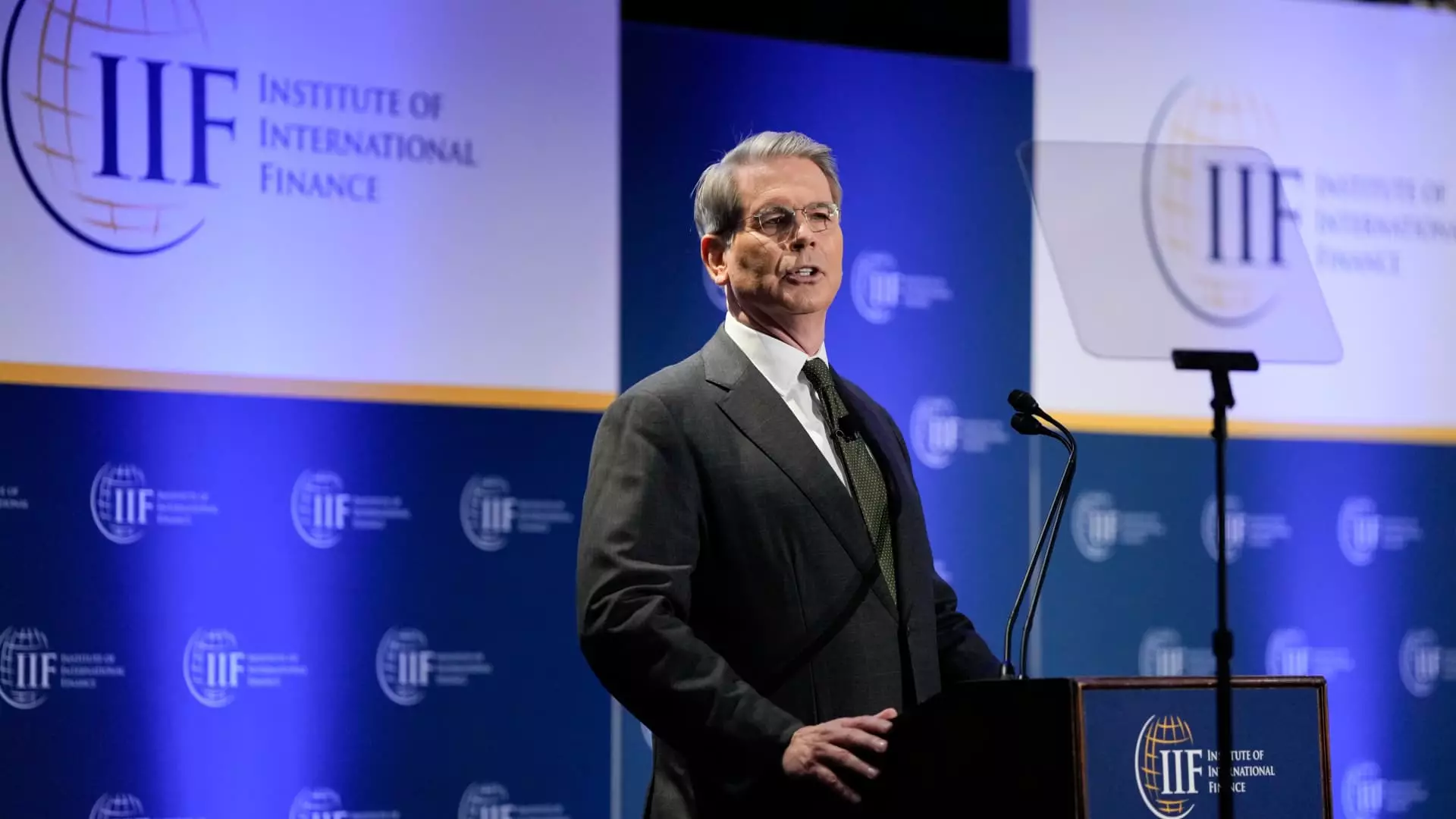The current discourse surrounding U.S.-China trade relations is akin to standing at the precipice of a pivotal moment in economic history. Treasury Secretary Scott Bessent recently articulated that this is not merely a predicament to be overcome but an opportunity rich with potential. His assertion that “there is an opportunity for a big deal here” resonates within the broader narrative of global trade—a narrative that has too often been marred by stagnation and hostility. This sentiment emphasizes a critical yet often overlooked aspect of international trade: the power of collaboration over conflict.
The crux of Bessent’s argument hinges on the necessity for a “beautiful rebalancing,” a term evocative of hope rather than resignation. It encapsulates the idea that active engagement can yield equitable resolutions, enhancing not only the economic landscapes of both nations but also the international community at large. Bessent’s call for collaboration to “rebalance” trade is a refreshing perspective in a climate dominated by protective tariffs and isolationist policies.
The Shadow of Tariffs and Economic Anxiety
However, beneath this optimistic outlook lies a serious concern. The U.S. trade policy under President Trump’s administration, characterized by sky-high tariffs on Chinese goods—an alarming 145%—has plunged the relationship into a quagmire of economic uncertainty. This unilateral move is not just an economic policy but a dangerous game of geopolitical poker. Secretary Bessent acknowledges that while tariffs were intended to protect American interests, they have inadvertently laid the groundwork for deeper economic strife.
There are hints that the current administration might consider scaling back these excessive tariffs, potentially reducing them to a range between 50% and 65%. While this may seem like progress, it remains a long way from the rebalancing that Bessent envisions. In a landscape where economic interdependence is critical, imposing such high tariffs will likely exacerbate tensions rather than cultivate the necessary collaboration that Bessent advocates for.
The Troubling Role of International Institutions
A major part of Bessent’s discourse centers on the role of institutions like the International Monetary Fund (IMF) and the World Bank in fostering a balanced global financial system. He critiques the so-called “mission creep” of these global entities, claiming that they have strayed from their foundational objectives. The notion that these institutions should be recalibrated to better serve their stakeholders is worth reflecting on. As they currently operate, the IMF and World Bank risk becoming enablers of dependency rather than catalysts for sustainable growth and development.
One of the striking elements of Bessent’s stance is his call for the World Bank to cease lending to countries like China, which, with its burgeoning economy, should no longer be classed as a developing nation. This point, albeit controversial, underscores the need for a reevaluation of what constitutes development assistance in a world where economic power dynamics are increasingly complex.
Moreover, by continuing to funnel resources into nations already on stable economic footing, these institutions unwittingly divert valuable investments from areas that truly need them. Bessent’s suggestion for establishing firm graduation timelines for nations rediscovering their economic independence is an astute observation. The economic world has evolved; lending practices must evolve with it.
A Warning Against Complacency
As we navigate this period of unprecedented change, it is essential to heed the warnings issued by economic leaders like Bessent and Ray Dalio. The potential for “something worse than a recession,” as Dalio stated, looms ominously on the horizon if we allow current tensions and imbalances to fester unchecked. The risks are not confined to the realm of economics alone; they threaten to manifest as social unrest and widespread discontent across nations.
The most significant impediment to achieving meaningful rebalancing lies in the entrenched positions of policymakers who favor protectionism over cooperation. If we are to embrace Bessent’s vision, both the U.S. and China must be willing to put aside their differences, engage in meaningful dialogue, and seek solutions that transcend mere economic gain. The obstacles are daunting, but the potential rewards—a more stable international trading system, enhanced global economic growth, and reduced friction—are immeasurable.
In a world where nationalism seems to be gaining ground, the concept of a harmonious global economy can feel more like a distant dream than a practical reality. Yet, it is precisely in these moments of tension that the case for rebalancing becomes all the more imperative. The stakes have never been higher, and the path forward demands courage, foresight, and a commitment to collaboration.

Leave a Reply